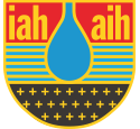Events
-

5 Nov 2025 – Pisa (Italy)/online
Nature-based Solutions and Managed Aquifer Recharge. Application, case studies and market perspectives.
Integrating NbS and MAR means designing water systems that work with nature, providing resilient, circular, and regenerative solutions for future water security. Climate change is intensifying droughts, floods, and water scarcity. Adaptation therefore demands robust, low-energy, and ecologically sound strategies. Nature-based Solutions (NbS) provide such an approach, using natural processes to deliver societal benefits, restore ecosystems, and enhance resilience. Water-related NbS traditionally include artificial wetlands, river restoration and floodplain reconnection, and sustainable drainage systems that improve water quality and supply, biodiversity, and climate regulation. Within this framework, Managed Aquifer Recharge (MAR) represents a key tool by intentionally replenishing aquifers. By storing water underground, MAR mitigates over-exploitation, prevents land subsidence and seawater intrusion, and supports groundwater-dependent ecosystems. Typical MAR schemes, i.e. infiltration basins and bank filtration, mimic natural recharge processes while offering control of quantity and quality.
Combining NbS and MAR creates powerful synergies: wetlands and vegetated areas can pre-treat recharge water, enhance infiltration, and generate co-benefits like habitat creation and landscape restoration. However, not all MAR systems automatically qualify as NbS. Their classification depends on biodiversity gains and ecosystem outcomes, not merely on recharge efficiency. Achieving measurable net biodiversity benefits remains a key research and design frontier.
This workshop explores how NbS and MAR can together strengthen water resilience and adaptation to climate change. Session 1 highlights complementary perspectives across contexts and scales. Daniela Benedicto Van Dalen (Acacia Water, Netherlands) presents the new-born IAH NbS and MAR Community of Practice (promoted under the IAH MAR Commission). Mara Meggiorin (Ramboll Italy) emphasizes the importance of infiltration basins as tools for safe groundwater replenishment. Anne Schultze (TUM) quantifies groundwater-dependent ecosystem services linked to MAR, while Andrea Gigliuto (ERM Italy) reframes water from a scarce resource to a strategic asset. Finally, Elfithri Rahmah (UNESCO IHP) illustrates the role of ecohydrological NbS in the UN water agenda. Session 2 explores applied research and regional case studies. Niels Mulder (Deltares, Netherlands) outlines aquifer storage and recovery for sustainable banana farming in Colombia. Ivan Portoghese (IRSA-CNR, Italy) models hydrological regimes in Spain’s Doñana wetlands, while Lea Augustin (TUM, Germany) presents a pilot linking stormwater management and water supply for hop gardens. Closing the session, Giacomo Vescovo (Scuola Superiore Sant’Anna) shares results from agricultural districts integrating MAR, NbS, and fertilizer-reduction strategies.
These contributions demonstrate that NbS and MAR are not stand-alone technologies, but parts of an integrated adaptation approach — one that merges hydrogeology, ecology, and governance to deliver resilient, low-energy, and biodiversity-positive water systems. Looking forward, NbS and MAR will increasingly underpin adaptation policies and sustainable finance initiatives. Markets such as water banking, payment for ecosystem services, and climate adaptation funds can mobilize investment if environmental and social benefits are transparently demonstrated. Integrating NbS and MAR means designing water systems that work with nature, providing resilient, circular, and regenerative solutions for future water security.
The workshop is organised within the WAT-CHANGE Seasonal School (https://www.santannapisa.it/it/seasonalschool/wat-change-water-ecosystem-climate-change ) and under the patronage of the IAH MAR Commission, the IAH MAR Community of Practice, the IAH Italian chapter and the Val di Cornia UNESCO-IHP Observatory for Ecohydrology.Price: Participation free/registration mandatory (giacomo.vescovo@santannapisa.it)
Organised by Scuola Superiore Sant'Anna.
 https://www.santannapisa.it/it/seasonalschool/wat-change-water-ecosystem-climate-change
https://www.santannapisa.it/it/seasonalschool/wat-change-water-ecosystem-climate-change  rudy.rossetto@santannapisa.it
rudy.rossetto@santannapisa.it



